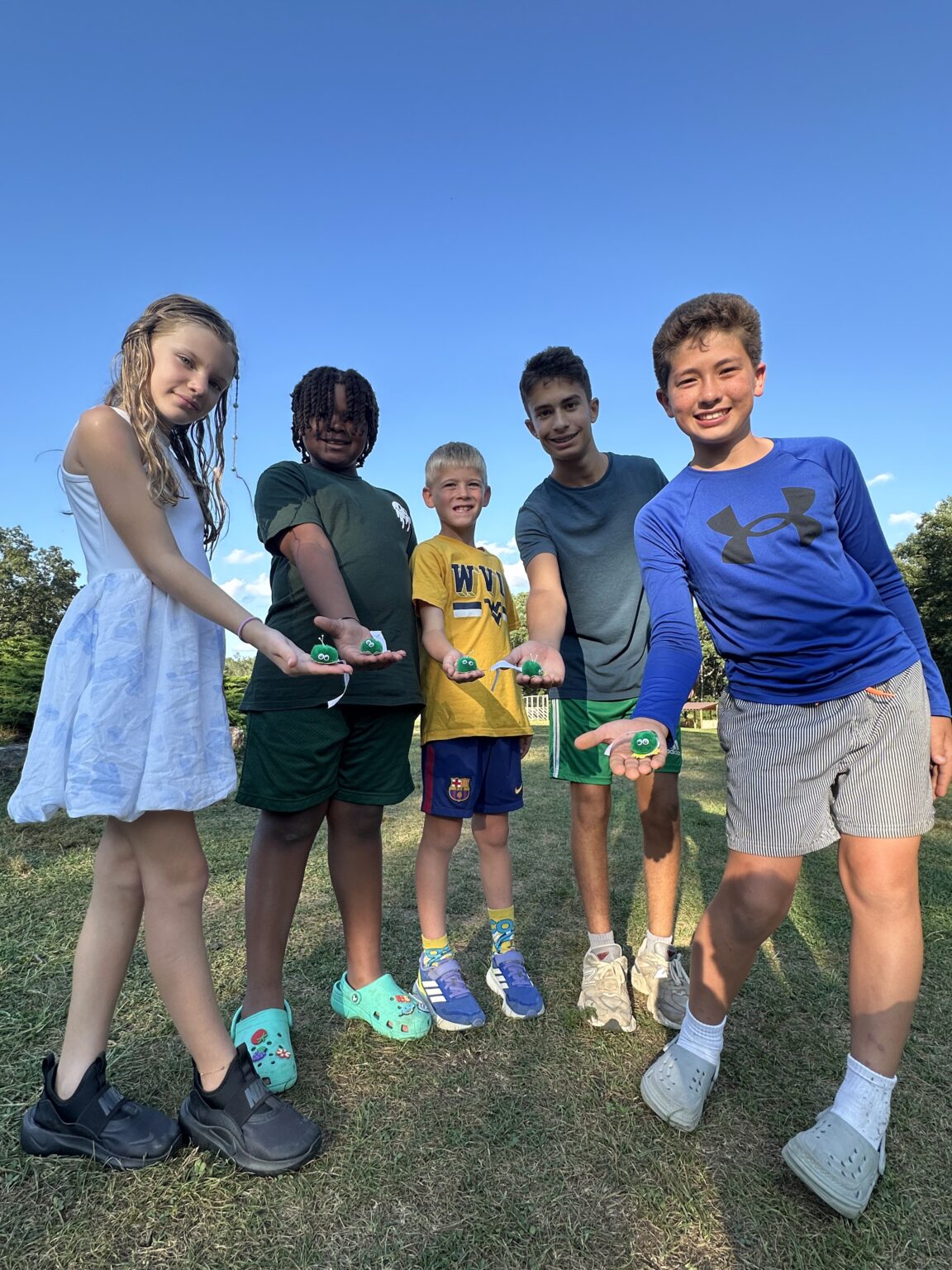The first rule of fuzzies is you don’t ask for fuzzies.
If you have no idea what I’m talking about, you’re not alone.
But if you’ve got a Twin Creeks camper in your family, chances are they know exactly what this means.
And chances are, some of them out there have a small collection of fuzzy pom-pom creatures sitting on their dresser at home that mean more to them than you might expect.
Fuzzies are our way of recognizing the moments at camp that matter most.
Not the ones that end up in highlight reels or camp photos, but the quiet acts of kindness that build the kind of community we’re trying to create here.
The Nightly Ritual
Every evening at Twin Creeks, after dinner and evening activities wind down, we gather the whole camp together. Head counselors step forward with their lists of nominations from the day.
Kids get quiet, listening.
“She helped get a couple of spiders out of the cabin.”
“He sat with someone when they needed someone to talk to.”
“For always having a positive attitude and being so friendly to anyone in the cabin” [- CJ in Elkins, 8/2/25]
“For being super motivated during LAX, cheering on her cabinmates and being such a good sport all morning” [- Maeve in Fairmont, 8/5/25]
One by one, we call out the campers.
They come forward to receive their fuzzy and a high-five. Everyone cheers. It’s simple. It’s consistent.
And, the kids love them.
These aren’t participation trophies. These aren’t awards for scoring the most goals or nailing the bullseye in archery. These are recognition tokens for being the kind of person who makes everyone else’s experience better.
What Actually Earns a Fuzzy
They’re getting fuzzies for helping out. For being kind.
They get nominated for doing the things that elevate others around them or step into places where the impact is real. Like the bug example from above.
It’s a huge deal for kids to get help with this. It doesn’t go unnoticed when someone’s able to handle a spider.
But like the opening statement implies, not every nomination makes the cut. And asking for one isn’t the point. These moments need to count, even if some might be unconventional.
The difference matters.
We’re looking for actions that show genuine care for community, quiet leadership, instances where someone chose to help when they didn’t have to.
The kind of stuff that builds the culture we want but often goes unnoticed.
Our counselors are always on the hunt for these things in a “we see the good you’re doing” way.
Different Ages, Different Magic
The fuzzy experience changes as campers get older, and honestly, that keeps it interesting for all of us.
Younger kids love the physical token.
They create what we call “fuzzy shrines” in their bedrooms at home. The little pom-pom creatures line their windowsills or sit on their nightstands. For them, the fuzzy itself carries the memory and the pride.
With older campers, I’ll sometimes do crowd work (I love crowd work) during the evening gathering, asking them to nominate peers on the spot.
Sometimes it’s brilliant – they hit the nail on the head with observations about kindness I missed. Other times I’m like, “Nah, not this time.”
The acknowledgment often matters more than the token for older kids.
At those ages, being seen and recognized by their peers and counselors for who they are, not what they achieved is what hits. These things land differently at 15 than at 8.
But the message is all the same.
Why This Actually Works
Spend a lifetime handing out fuzzies and you notice a few things.
Sometimes there’s a delay in getting them handed out. It’s not by design. Camp life means sometimes it rains and we can’t gather outside, or scheduling gets complicated. Suddenly there’s a backlog of fuzzies waiting to be handed out.
You might think delayed recognition would lose its impact.
Actually, the opposite happens.
When a camper gets called up for a fuzzy three days after the fact, there’s this moment of surprise:
“Wait, someone noticed that?”
They realize we were paying attention even when they thought no one was watching.
Some kids forget the specific behavior they’re being recognized for by the time they receive their fuzzy. But they never forget being recognized. The emotional memory sticks: I did something good. Someone noticed. My community celebrated me for it.
That’s the real win. Not the fuzzy, but the culture it creates. A place where kindness is the currency.
What It Means
Camper came home with a fuzzy? Ask them about it.
How’d they earn it? The story might be simple, but it means so much.
The world often celebrates the loudest voices and biggest achievements. We want to celebrate the quiet moments that actually hold communities together.
The first rule of fuzzies is you don’t ask for them.
But the second rule?
There is no limit to how many you can earn. Just need to be the kind of person making everyone else’s day a bit brighter.
Best wishes, Iain
